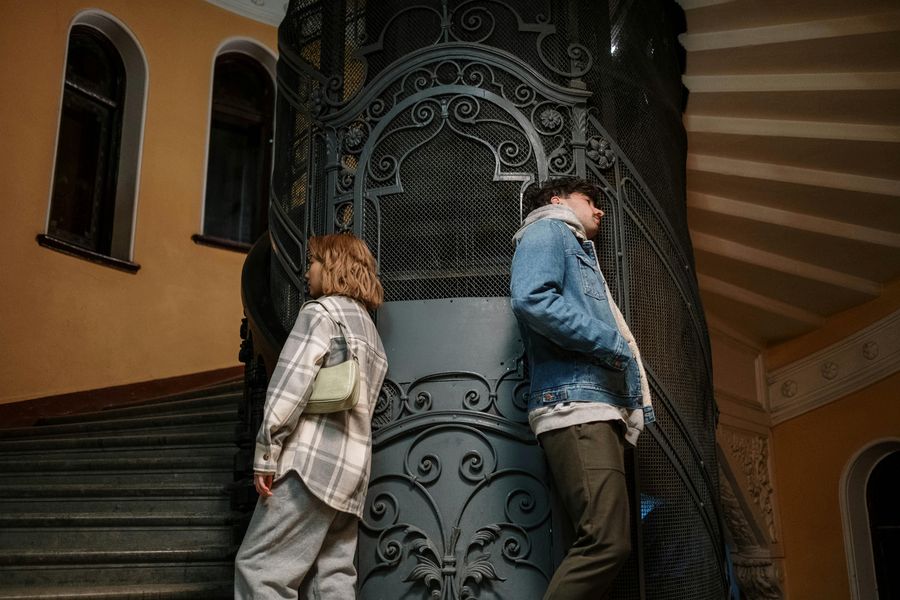Coping With The Loss Of A Friendship
Losing a friend can be one of the hardest things you’ll ever face. It’s painful, confusing, and can feel like a personal failure.
But the reality is that friendships, like any relationship, are subject to change and sometimes come to an end. Whether it’s due to an argument, a life change, or just growing apart, losing a friend doesn’t mean that you’re alone or worthless.
The key is to acknowledge the situation, accept what has happened, and find ways to cope and heal. In this article, we’ll explore strategies for coping with losing a friend, and the grief that can follow.
Acknowledge, Accept, and Move On
One of the first things you need to do when coping with the loss of a friendship is to acknowledge and accept the situation. It’s important to understand that people change, and that not all friendships are meant to last a lifetime.
Instead of dwelling on the loss, try to focus on the good memories, and the lessons you learned from the friendship. Recognize that things may never be the same again, but that doesn’t mean you’re not deserving of companionship, support, and love.
It’s also important to remember that healing takes time. You can’t force yourself to feel better overnight, but you can take steps to move forward.
Make a conscious effort to let go of any negative feelings or grudges, and focus on the positive aspects of your life. Surround yourself with supportive and caring people, and engage in activities that bring you joy and fulfillment.
Apologize, Space, Reconnect
If you’re hoping for a reconciliation, it’s important to approach the situation with maturity and respect. If the loss of the friendship was due to a disagreement or misunderstanding, see if it’s possible to reach out and clear the air.
A simple apology or explanation can go a long way in repairing a broken relationship. However, it’s also important to respect the other person’s feelings and boundaries.
If they need space or aren’t interested in reconnecting, it’s best to respect their wishes and move on.
Giving Space
Sometimes, the best way to deal with a loss of friendship is to give the other person space. If emotions are high, or if there’s been a lot of hurt or confusion, taking a break from each other can be a healthy way to gain some perspective.
Use this time to focus on your own needs and feelings, and engage in self-care activities that help you feel more grounded and centered. You may also want to lean on mutual friends or family members for support, as they can offer a different perspective and help you process your feelings.
Social Media Boundaries
Social media can be a great tool for staying connected, but it can also be a double-edged sword when it comes to dealing with a loss of friendship. If seeing photos or posts about the other person is causing you more pain and heartache, it may be best to avoid their profiles or take a break from social media altogether.
Remember, it’s okay to prioritize your emotional wellness and protect yourself from triggers that lead to negative feelings.
Respectful Behavior
It can be tempting to bad mouth or speak ill of the other person after a loss of friendship, but this approach only leads to more hurt and negativity. Instead, focus on being respectful and mature in your behavior.
This not only helps you maintain a good reputation and sense of integrity, but it also helps you move on from the situation with grace and self-respect. It shows that you’re a bigger person, and you’re able to take the high road even in difficult situations.
Being Social
One of the most powerful strategies for coping with losing a friend is to stay social and engaged with others. This doesn’t mean you have to jump into new friendships right away, but it does mean that you should make an effort to spend time with people who care about you and help you feel good.
Whether it’s grabbing coffee with a colleague, joining a club or group, or getting outside and moving your body, being social can help you break out of negative thought patterns and find new sources of joy and connection.
Closure and Healing
Finally, it’s important to process your feelings and seek closure after losing a friend. This can mean different things for different people, but some strategies include writing a letter to the other person (even if you don’t send it), seeking support from a therapist or counselor, or engaging in self-reflection activities like journaling or meditation.
The goal is to come to terms with what happened, find a sense of peace and acceptance, and move on with your life. You may never forget the person, but you don’t have to let them hold you back from your own happiness and sense of wholeness.
In conclusion, losing a friend is a painful and difficult experience, but it’s not the end of the world. By acknowledging and accepting the situation, engaging in self-care, staying social, and seeking closure, you can move forward with your life and find new sources of joy and connection.
Remember, people come and go, but your own self-worth and strength are always within reach. With time and patience, you can heal from a loss of friendship and grow into a stronger and more compassionate person.
In conclusion, the loss of a friendship can be a heartbreaking experience, but it’s important to remember that healing and growth are possible. By accepting and acknowledging the situation, engaging in self-care, finding new sources of joy and connection, and seeking closure, you can move forward with your life and thrive.
Remember that some relationships are not meant to last forever, and that doesn’t make you any less valuable or deserving of love and companionship. With patience, perseverance, and self-compassion, you can overcome the pain of a lost friendship and embrace new opportunities for growth and happiness.



